Hurricane Harvey was difficult for all of coastal Texas and Houston. Flooding shut down most of the city of Houston for days on end, public schools that were hard hit are still yet to open for some, and many people’s lives are forever changed. We shared disaster recovery for a small business a couple of weeks ago. Many residents of the affected areas were only in the beginning phases of taking these steps. There are ways to prepare your small business for bad weather but dealing with a natural disaster calls for some extenuating circumstance. Though we’re still recovering from the storm, we’d like to share with you strategies we used to keep business running during a natural disaster, as well as some of the things we learned through the process.
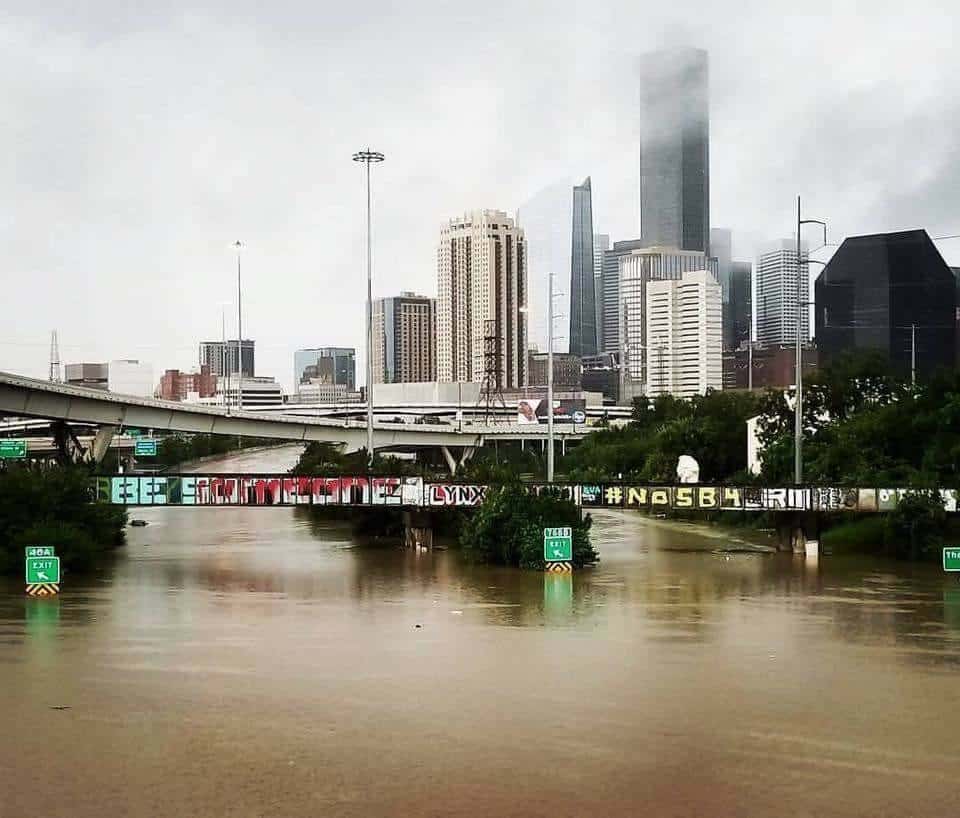
Downtown Houston I10 @ I45
Life Over Things: A Disclaimer
Something that was upsetting to witness, read about, or be aware of prior to and during the storm were the actions people would take in effort to protect their material things. Many put their lives in danger. In fact, one of the first reported deaths was from a live wire electrocuting a young man going to check on his sister’s house. Evacuation by boat became necessary in areas, yet people were still working to carry things to their attics in attempt to salvage.
When disaster strikes, put your life ahead of anything you own. This may sound like an obvious statement, but people in a panic proved otherwise during the storm.
Ensure Employee Safety
When we say ‘life over things,’ ‘things’ include a job. An employee shouldn’t have to put their life at risk to deliver a pizza, after all. As a business owner, it is your responsibility to ensure that your staff is safe. Set clear expectations. If you need them to work throughout a natural disaster, you need to make them aware of this well in advance. Employees should also be aware of the standard operation procedures in the case of an emergency, or Emergency operating procedure.
Similarly you as the business owner need to encourage your employees to make their own personal emergency plan. So that when a natural disaster does strike, their families can be prepared as well. We recommend you review your emergency operating procedure every year at the start of your storm season with your team. This is a good opportunity to remind them of your expectations. Plus you can remind them to review and update their own personal policy.
Why We Kept Things Running
There are certain lines of business where you know you’ll have to work despite inclement weather or crisis. Medical industries and emergency personnel are the first to come to mind, but an answering service is also one of the many different businesses. The thing is, we service many medical care providers. We also service clients that are real estate property managers. So if you’re undergoing a medical emergency or there’s water coming into your house, you’ll be trying to call our clients. And we’ll be there to answer.
Not to mention after the waters receded. AC was covered in water? What about your breaker box? How is your roof doing? Need a Forklift to do a job? What about a special pump or bearing?
We have been answering Houston’s calls for over half a century. We weren’t going to let Harvey stand in our way.
Why Many Businesses Couldn’t Keep Running During a Natural Disaster
We’re not the only answering service that needs to answer when a natural disaster strikes. There are several other local answering services in the area. Some were up and running just fine, others weren’t able to do what we did. They just didn’t have the right planning set up ahead of time.
How do we know?
Because they called us. Yep. When a natural disaster struck, the competition called and asked for our assistance manning calls for their clients. As a small community, we all actually help each more often than you would think.
To help we offered up our office space. Our office is only a couple of blocks from where this image was taken. Yet we never lost power, managed to stay dry, and our systems were online the whole time.
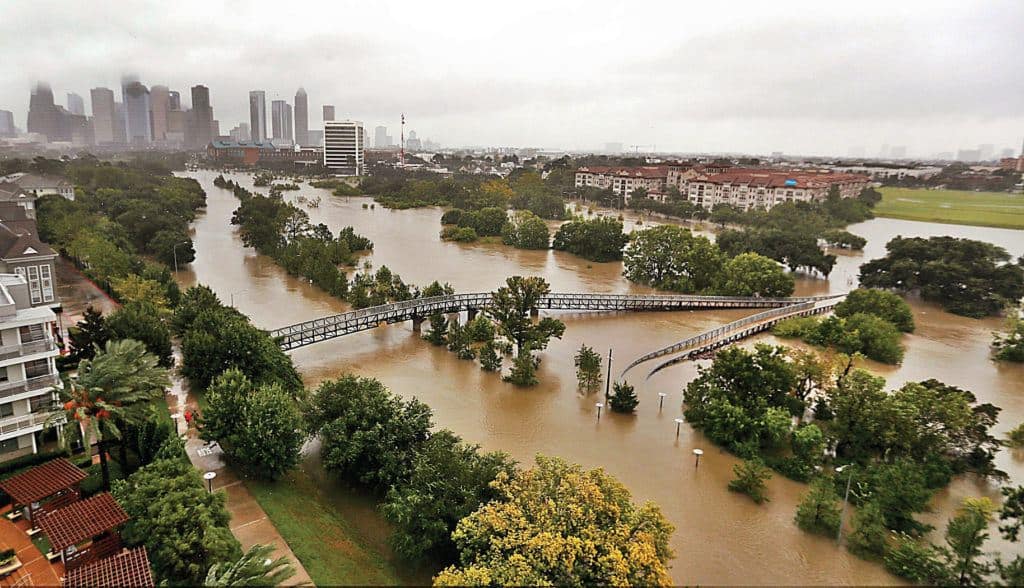
Rain continues to fall in Houston from Tropical Storm Harvey (Karen Warren/Houston Chronicle via AP)
Where to Work During a Natural Disaster
If you don’t have to work, then don’t do it during a natural disaster. Remember life over things.
Although many of our employees work remotely, some of our employees prefer to work strictly out of our office and have yet to set up a space to make working from home possible. We knew ahead of time that the streets would be flooding. We also knew that even without a category four hurricane, some of our staff can have a hard time getting from their side of town during inclement weather. If they couldn’t make it to our office, how could they answer the phone correctly? This was our dilemma.
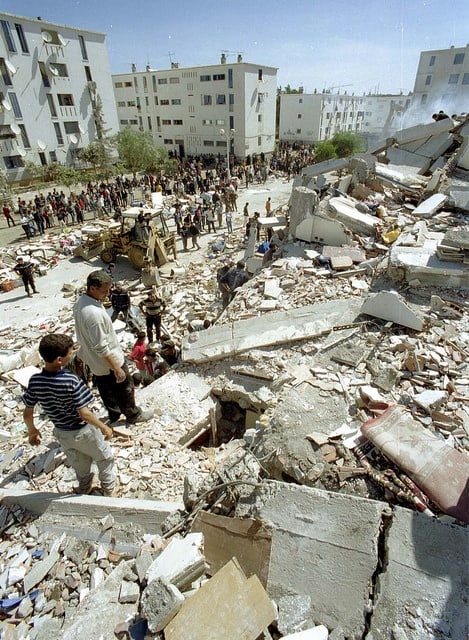
Few Algerian buildings are insured against natural disasters, such as the 2003 Boumerdes quake that left thousands dead or injured.
Enter AirBnB
We needed our staff to be able to stay somewhere safe and to get to a work space if the roads became impassable. We thought outside of the box on this one: we decided to rent an AirBnB that was within walking distance to our office. The space was a three-bedroom townhouse, complete with a spa tub with jets! It was important to us that we go the extra mile to ensure that our staff felt not only safe during the storm, but also comfortable.
We ended up setting up shop right there. Hey, it was comfortable! We stocked up on canned goods…though we still took a few treks to eat something more delicious. Other than that, we did what we know down here in Texas is necessary in times like these. We hunkered down.
It kind of felt like a slumber party. Except without the fun green face masks, or cucumbers. I sure wish we had cucumbers.
Set up Tech in Case of an Emergency
Staying Powered Up & Online
As mentioned in our post about preparing your small business for bad weather, generators and back up batteries are a must for businesses that would like to stay running during a natural disaster. All of those things were in place. We also always have two internet providers, in case there is an outage in the area for one.
We had to make some calls upon learning about the hurricane coming our way to make sure that we’d stay connected to internet. Thankfully, we have SIP trunks that are allowed to be routed anywhere. Internet safety is important to us and our clients, so it was crucial that while we worked elsewhere, we’d still have the same secured internet service.
Keeping your Data on Hand
We found that many small businesses weren’t able to stay operational a week or more after Harvey hit. This had to do, in part, with an inability to access their files. Some use traditional paper filing systems, while others keep their data loaded on files saved on a server. “Where’s the server located?” You may ask. In their office. Which is no good if their office starts took on water.
We recommend using a cloud-based solution or storing your servers at a data center. We use both. Many small business owners are concerned about privacy when it comes to cloud-based solutions. However, the cloud that we use isn’t from Amazon or Google. It’s a private cloud solution. These are both local–located in Downtown Houston. So when the water was rising, there was some concern. But our team knew that we still had a backup server, located in Wisconsin, on standby.
Call on Extra Help during a Natural Disaster
Pre-recorded Message
We received a high influx of calls during the storm and the following days (coming on weeks, now). Yes, there were many calls from people looking for property managers to alert them of damages that had occurred, but there were also a lot of calls that could have been filtered out by more discretion of the customer. While our office generally receives, routes or screens around 1,200 calls on a usual day, we were receiving upwards of 3,2oo calls during the storm.
There was a delay in getting to all of the callers, so we had a automated message playing during call wait time letting the person know about the increase in calls, expectation of a longer wait, and to call back at another time if it wasn’t an emergency.Yet, we still got a lot of calls to doctors offices rescheduling appointments, citing that the road closures were disallowing them to get to the appointment on time.
On-call Workers
People don’t want to work during a natural disaster. Time management was still difficult as we handled the influx in calls with the pre-recorded outgoing message. Even if their homes and families are perfectly fine, the other people in their lives are unlikely having to work through the disaster and they don’t want to, either. As the calls kept coming in, we took to our networks to ask for additional help. Maybe your on call team need’s help too during a natural disaster.
Hiring an Outside Agency
Our network wasn’t necessarily more available than our regularly paid workers. Because of this, we enlisted the help of another live answering service. We know when to hire an answering service, after all. That allowed for us to have an additional virtual receptionist dedicated to our clients.
Apply this to your small business…
What We’d Do Differently
The Airbnb we stayed in had some nice digs, but it wasn’t all hunky-dory. If there was a threat of another storm of this magnitude heading our way, I’ll be honest with you–I’d put my team and their families on a bus and head for the hills. In the future, we know that Houston is unlikely to call for a mandatory evacuation of the entire metropolitan area, so we’ll take things in our own hands and head somewhere with a drier forecast.
Now try this to prepare for a natural disaster:
The most important lesson that was reiterated to us throughout the storm was that all businesses need standard operating procedures in the case of emergency. Phones kept ringing as we stayed open–more than ever. Have a plan ahead of time how you will deal with the disaster, your employees, and how to make accommodations for work to happen.
Your employees should know the expectations for their attendance in an event like this. Many of the calls coming in were people who were unsure if they had to attend work or not. They were dealing with flooded homes, streets were impassable, and the city had requested that all shelter in place, but they were still worried about losing their job if they weren’t in attendance. Most employers called and let us know that their staff was not required to attend if it was unsafe, but there wasn’t a way for the employer to directly reach out to all employees by phone or email and let them know that. Why? Because they didn’t have a list of employee contact information outside of the office. Employees also didn’t have a direct number for their supervisor, so they were calling clogged office numbers.
Because of this, I feel it’s necessary that small business owners have lists of contact information for employees and main vendors outside of their workplace. An electronic copy that’s accessible from many locations would be ideal. A laminated paper copy would also work as well.
That being said, there should also be a protocol put in place if a supervisor or a regular point of contact can’t be reached. There should be a designated second or third decision maker available, so that outside vendors aren’t lost as to what they should do to best serve your business.
We have a detailed listed of emergency contacts, and escalation available on our internal intranet.
Be nice!
Just remember that when a natural disaster strikes your area, everyone is feeling the effects of the disaster in different ways. Catastrophes are scary, and it’s too often that fear brings out anger in people. We noticed that customers were more quick to get upset over things that were natural results of the disaster that occurred. Though we know how to deal with angry customers, it’s good to remember that even if you want to release your anger on the first person who’ll listen, that person can be feeling it’s effects in similar, or even worse, ways.
Update June 2018
We were disappointed when we had to hire an answering service out of town to help handle the increased call volume after the storm. We are a small business and only have so much capacity. This still just felt wrong to do to our customers. The other answering service, just didn’t treat ya’ll the way would.
To make sure this doesn’t happen again we had two main goals.
- Increase Team Size
- Become location independent
Increased Team Size
We have since increased our team by about 35%.
This allows us to add more people on busier shifts, and increase call answer and message delivery time. As an added bonus we can now give the team more time off from work too. Especially in the slower fall and spring months. (Best time to get outside in Texas right?)
More people means more positions. We created two new positions for people to grow with us.
Become Location Independent
During the hurricane we worried about keeping our office operational. We take all the appropriate steps, but still stuff happens. In addition to worrying about keeping everyone safe, but still getting them into the office. A few team members were already working remotely during Hurricane Harvey, luckily only one of them lost internet as well. This location independence really saved the day.
Over the last few years we have been slowly working to become a remote company. As a 50 year old business that isn’t an easy task. But we knew it was the right thing for us to do. Late last summer we had the right infrastructure in place, and even had a couple of test team members out there. This is how we were able to work from the Air Bnb, everything was set up for remote work already.
As of February we are now 100% remote. We are no longer tied to our Houston Heights office space, or even Houston for that matter. We have people spread across eight cities in Texas!
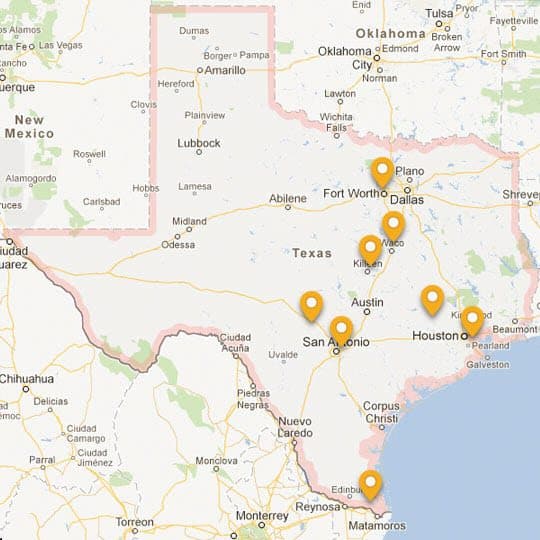
We have receptionists all over the lone star state.
2018 Storm Season
We are more ready than ever, to be here for you, especially when you need us most.

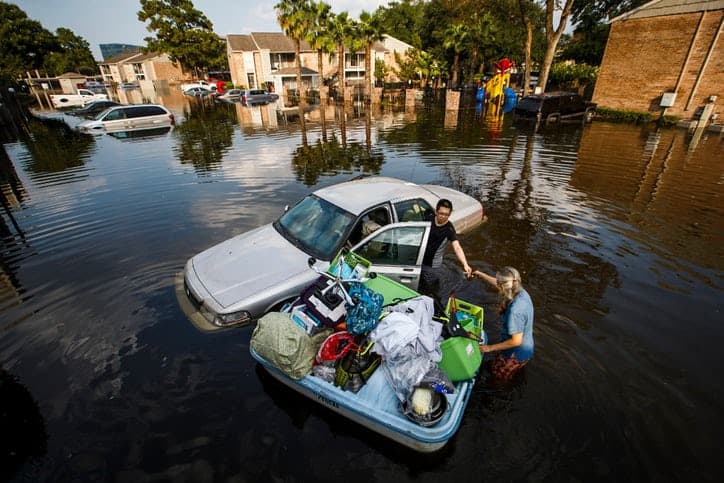
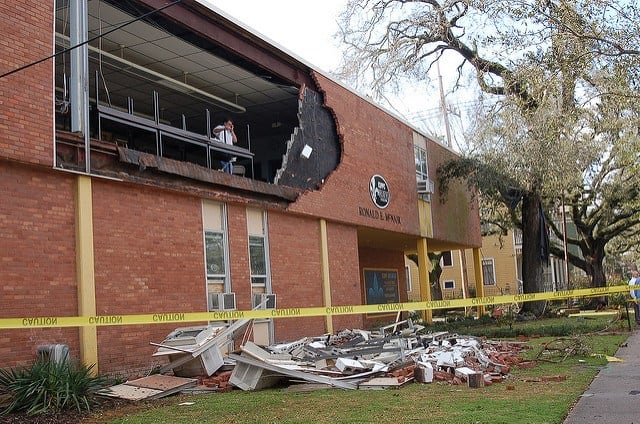
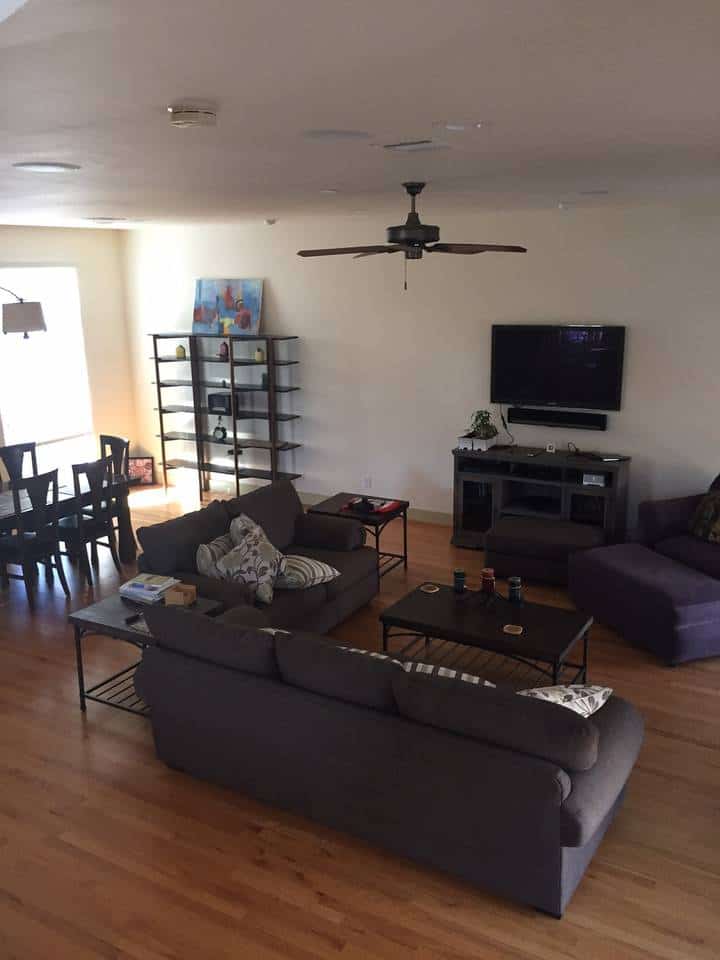
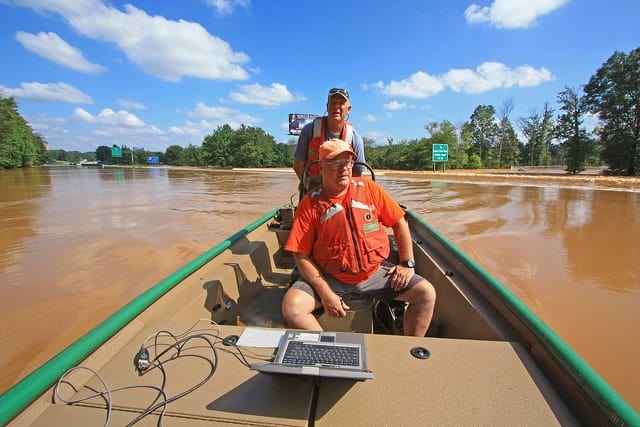
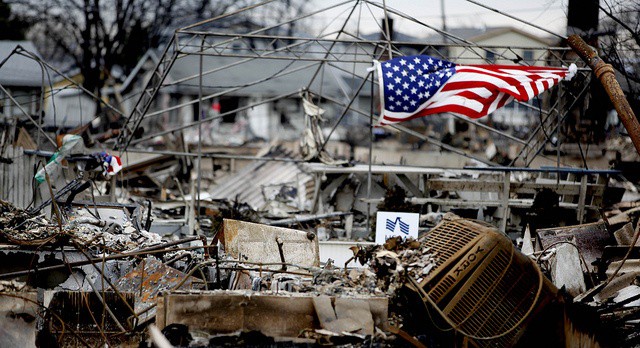
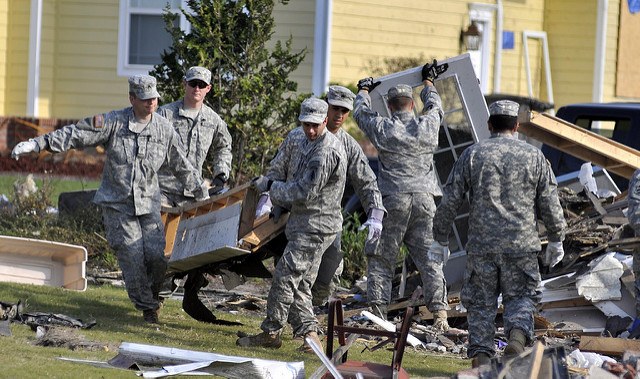
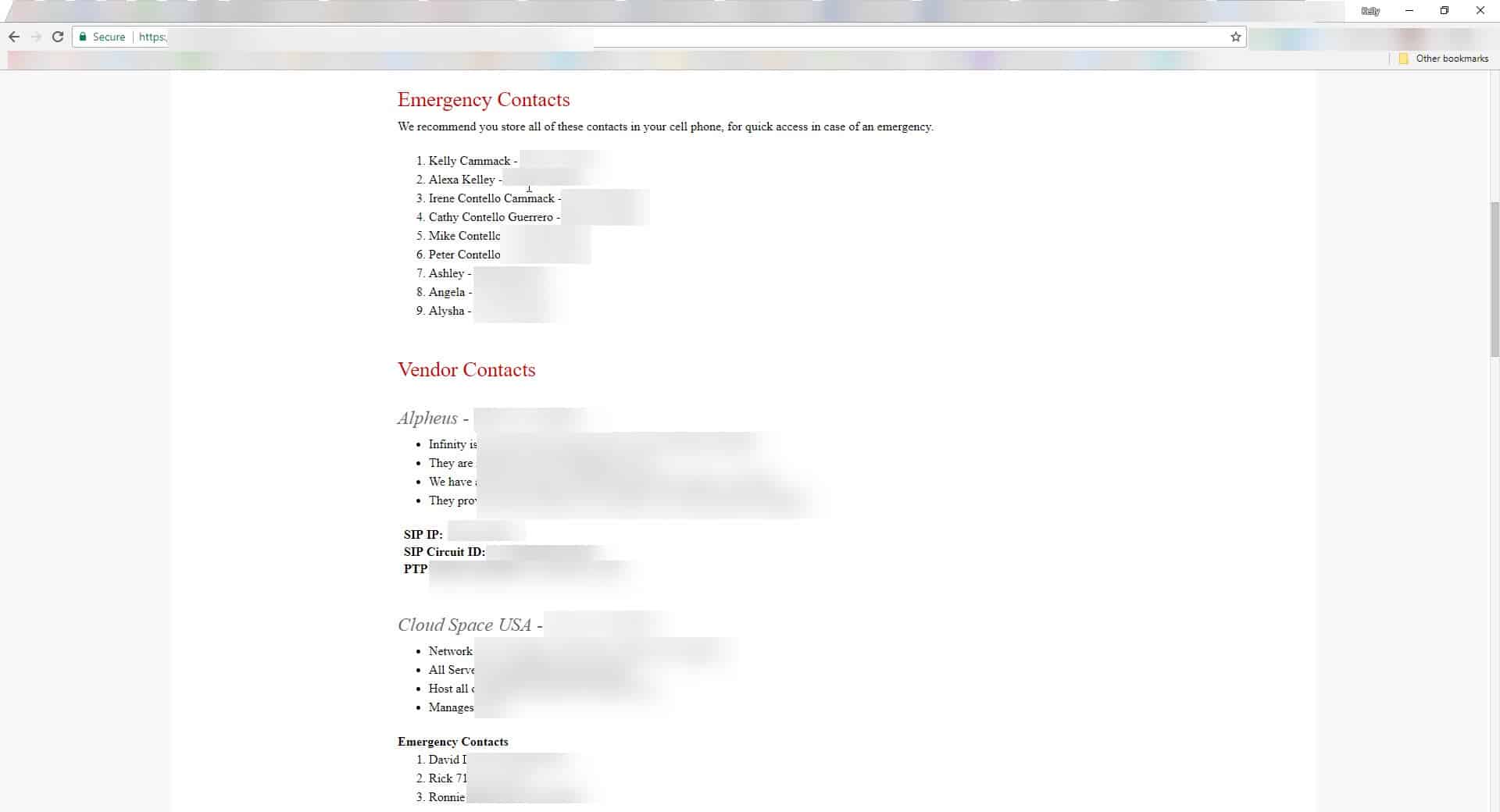
Thank you for the great services you have always provided to me and the clients I serve in my psychotherapy practice. You also make a difference with your professionalism and the way you support the community of clients you serve. Thank you for this important information.
Thanks,
Alan Schneider
Hi Allen,
Thanks for your kind words.
I hope you took something away that you can apply to your practice.
Harvey really was nothing like I have ever experienced.